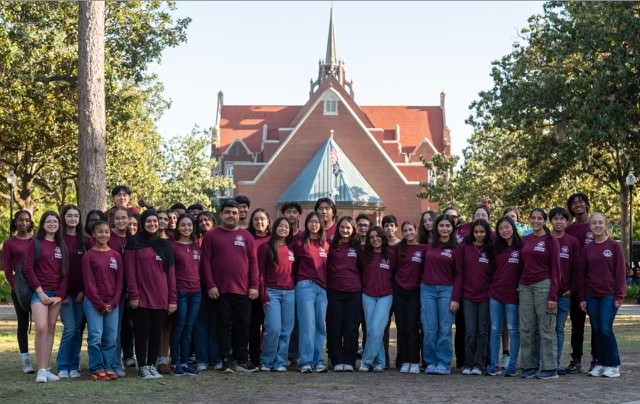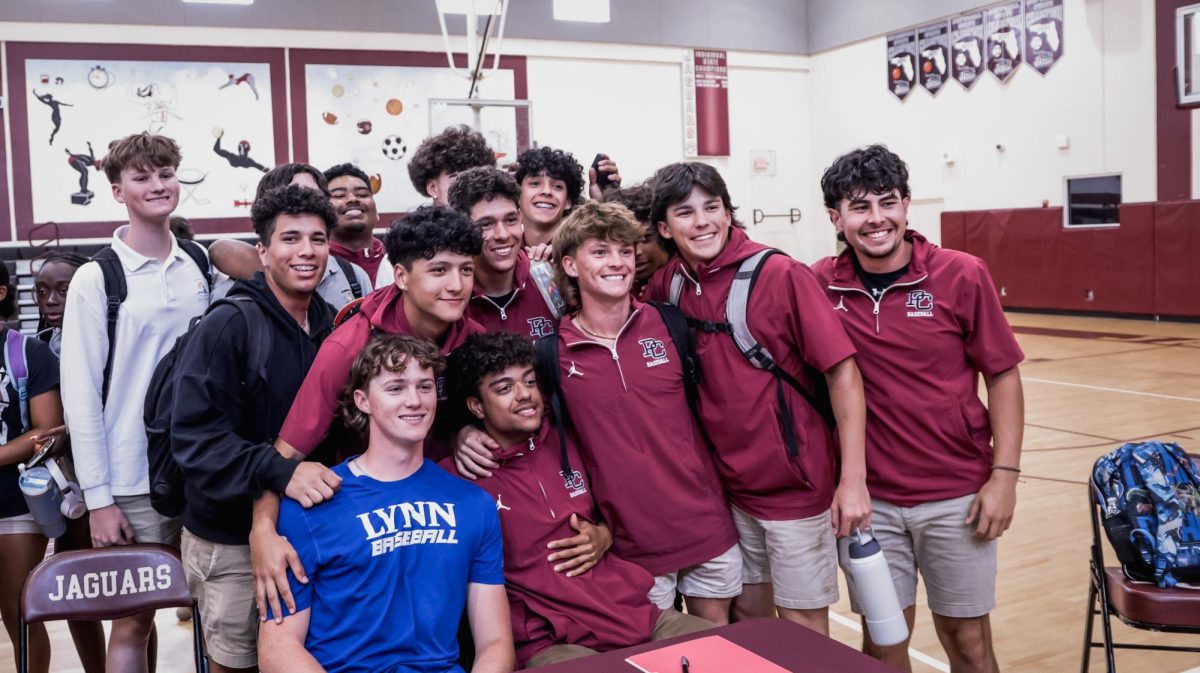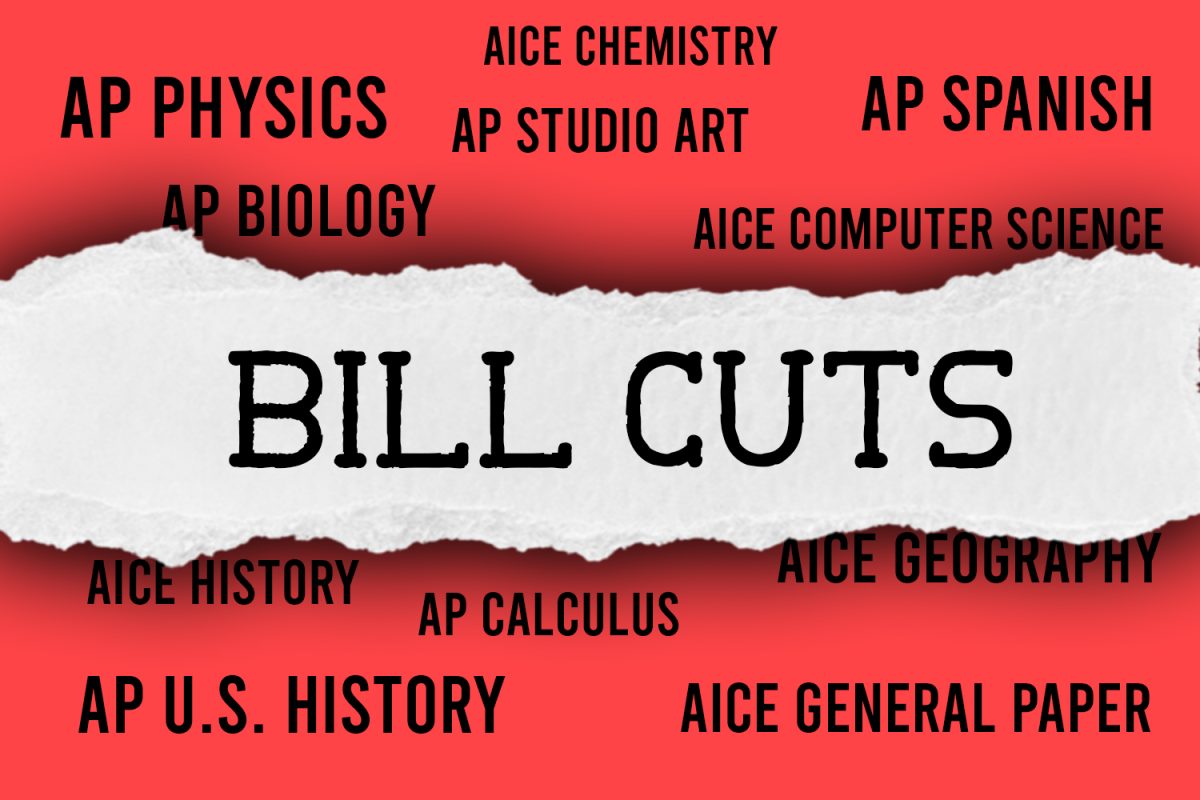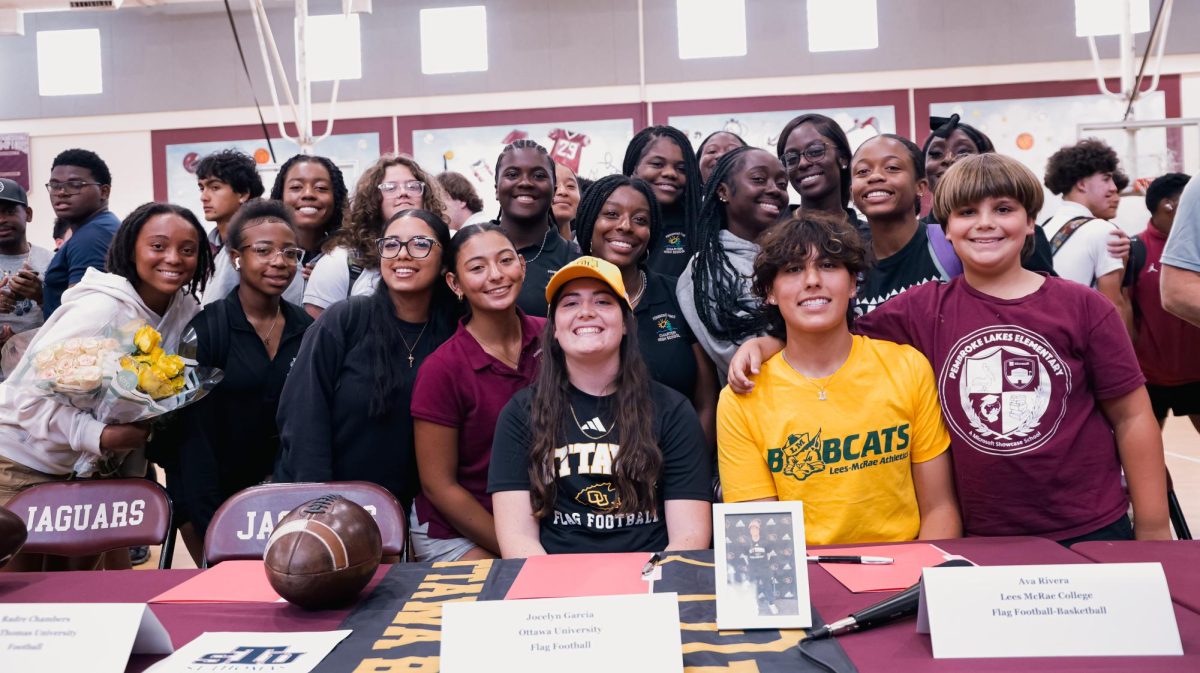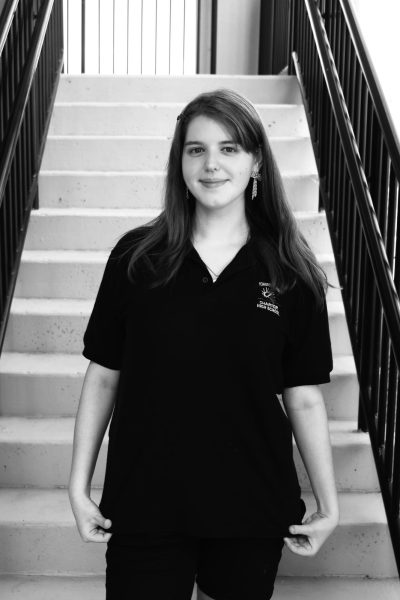While most seniors anticipate college admission letters, a niche group of the class of ‘25 anticipate upcoming sports games and the amount of money they could earn just from their $15-40 wager. The adrenaline rush feels fantastic but the “payout” could ultimately be probation, considering that most of these seniors are gambling illegally.
One underage senior reports to make “about 1,000 a month” off of gambling alone. He accorded, “Some months you win more and some months you lose more; Usually I’m always winning”. Among his friends, he is noted to win the most money, as his friends usually earn a minimum of $300 throughout the year.
Using applications such as Hard Rock Bet and Fliff, students can place bets on teams through a layout. This layout is referred to as a spread, showcasing each team and whether or not they are deemed a “favorite” or an “underdog”. These factors impact the possibilities of winning for betters along with the amount of money they will receive if they win.
This senior’s strategy is based on parlay bets, which means he is betting on multiple teams at once with only one set amount as the wager. “Usually I do parlays of 3-4 teams so the odds are about 340+. I can basically double my money” he said.
On paper, (or in this case on a phone), the odds seem to be in favor of the better, however, this senior notes that it’s far from the case. The senior says, “sports-betting is in no way better than an actual job. I would not recommend it to anyone. People usually lose more than they win”.
He and his friends happen to view sports-betting as a hobby, but they as well acknowledge the dangers of their hobby and the consequences gambling has on someone’s life over time.
One person who can account the consequences of sports-betting firsthand, is AICE International History educator, John Jablonka. According to Mr. Jablonka, he doesn’t gamble as much as he used to, the reasoning being that sports-betting to him, “is an easy way to lose money and can be a highly addicting thing”.
In Jablonka’s earlier years, he had struggled with overcoming his need to sports-bet and now rarely views the spreads in order to gain insight on college football games. He understands the pressure to bet from a first hand point of view. “It’s definitely being forced into the forefront of society when it comes to sports. You have DraftKings, FanDuel and all these betting companies that now sponsor professional leagues”
Regardless, when it comes to students, including his own sports-betting, he holds significantly more concern to their futures. “A lot of these students think it’s fun. I know it surely makes the game more exciting, but they don’t realize the serious impacts it’s going to have on them. If you’re already developing any type of addiction in high school, you have to be able to curb those things to get anywhere”.
Jablonka recommends that before sports-betting, students should focus on their future. He says to “find a good stable job, join an extracurricular, go to college, and get a couple more years under your belt. Grow and mature.”
To the students who gamble, he poses a critical question, “When you’re living in a society right now where things are extremely expensive, why would you want to risk losing more money?”.
For underage gamblers, there is even more to lose than just ‘betting money’, in the chance that they are found out. Platforms such as Hardrock and Fliff may suspend the account they bet from, which is by far, the least problematic punishment among many.
Upon further investigation, the state may require students to pay up to $500 in fines, serve 60 days in jail, and experience 6 months of probation. Anyone who has legal guardianship of the minor(s) can be faced with a misdemeanor for ‘influencing’ or ‘encouraging’ such activity.
According to Assistant Principal Cindy Velez, students of Charter seem to be unaware of the consequences for illegal gambling (let alone in a school setting). She notes to hear stories from students passing by, playfully discussing their losses and hopeful betting strategies for the season. She has also seen students gather together, loudly commuting over betting opportunities under the fluorescent lights of the cafeteria.
Although Velez hasn’t been made aware of any specific incidents of students engaging in online sports betting, she would like to remind students that “engaging in any form of gambling is strictly prohibited by the Broward County Code of Conduct”. Velez continues to advise students to steer clear of gambling as the hobby can quickly transform into addiction. She says,“I encourage all students to make responsible choices and avoid behaviors that can have a lasting negative impact.”

